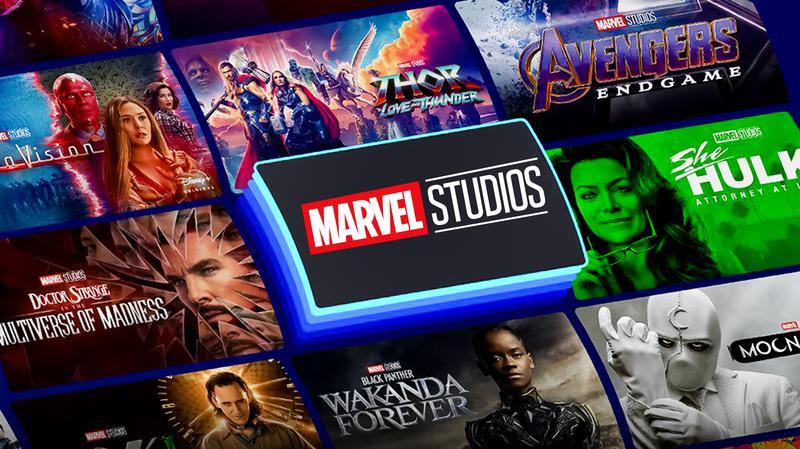
A new book just revealed the why behind the issues plaguing Marvel Studios Disney+ series.
Written by reporter Maureen Ryan, Burn it Down is an investigative study of what's gone wrong in Hollywood in terms of its culture, bias, and problems surrounding past and present television shows and its major production companies.
Inside Report Details Marvel Studios Problems

Maureen Ryan's expose, Burn It Down, provided new insight, as well as an explanation, for Marvel Studios' recurring issues, particularly in terms of MCU Disney+ television shows.
According to Ryan's sources, multiple TV veterans have taken meetings with Marvel Studios, with some expressing a lack of interest due to a lack of autonomy.
At Marvel Studios, the lead writers on its MCU Disney+ series are credited as "head writers" rather than "showrunners." Meanwhile, Marvel Studios President Kevin Feige and other executives are marked as executive producers.
Granted, this particular practice isn't wholly unusual, but that's not all the author described or where the problem ends.
According to a TV veteran, the author referred to as "Steve," Marvel executives are often in the writer's room as well.
Another source labeled as "Emma" confessed Lucasfilm utilizes the same practice, while also referencing a time when an executive referred to themselves as the showrunner.
The potential problem with executives in these roles - and in these rooms - is the question of whether final decisions are motivated by story or what best serves the next film or series on the assembly line.
A Marvel insider pulled back the curtain of MCU television's modus operandi where a writing team, helmed by a head writer, is assembled but ultimately overseen by a Marvel executive.
As Marvel Studios expanded alongside its output of content, those put "in charge" ultimately lack experience; and due to the rapidity of the MCU machine, there's too much to juggle and not enough time to learn.
The insider went on to note that Marvel wasn't always this way and how Kevin Feige used to "go around and be the problem-solver on the movies."
Now, there's too much happening in all areas which is "why everything is wildly uneven."
As for the studio's current TV process, writers - including the head writer - are often gone once production begins and after they have completed their number of scripts. A new team is then left to deal with on-set rewrites.
Again, things aren't that different over at Lucasfilm.
A source referred to as "Christopher" described how Lucasfilm script coordinators and writers' assistants never spoke to the showrunner, and changes or revisions based on producer and director notes ultimately bypassed the showrunner altogether.
In addition, this same source connected to Marvel employees relayed that producers would pitch an idea to a writer, assign them an outline, and then have it thrown away before assigning them another.
Of course, this issue with this isn't just a lack of direction but the absence of single creative vision.
Christopher went on to point out that an individual may be labeled - and even promoted as a head writer. But ultimately, the title isn't always accurate given the ever-changing set-up.
In the end, as he explained, head writers "are not running any show. They have no real power."
Is This Still a Problem at Marvel Studios?
It's no secret that Marvel Studios has struggled with its quality of Disney+ series in recent months.
Following the success and acclaim of WandaVision, The Falcon and the Winter Soldier, and Loki, subsequent series suffered criticism for their lack of connections, poor CGI, and convoluted storytelling.
Whether Ryan's Burn It Down is an accurate picture of what's truly happening behind the Marvel Studios curtain is difficult to say.
Different productions, perspectives, and experiences often differ, and may even be unaware of the extent of the story.
However, if what Ryan's sources detailed is true, it would explain the lack of cohesiveness and quality which was once a hallmark of MCU storytelling.
Still, as the expose's sources acknowledged, Marvel wasn't always this way.
The issues detailed in the book likely stemmed from the studio attempting to launch its new saga amidst COVID-19 and worldwide theater closures, as well as pressure from Disney executives for more Disney+ content.
The good news is that things are changing. Upon returning to his former role as Disney CEO, Bob Iger has been pumping on the brakes on studio output, emphasizing quality over quantity.
Hopefully, many of Marvel Studios' internal problems will soon become a thing of the past and a future warning of what happens when a company prioritizes the IP machine over creativity.












